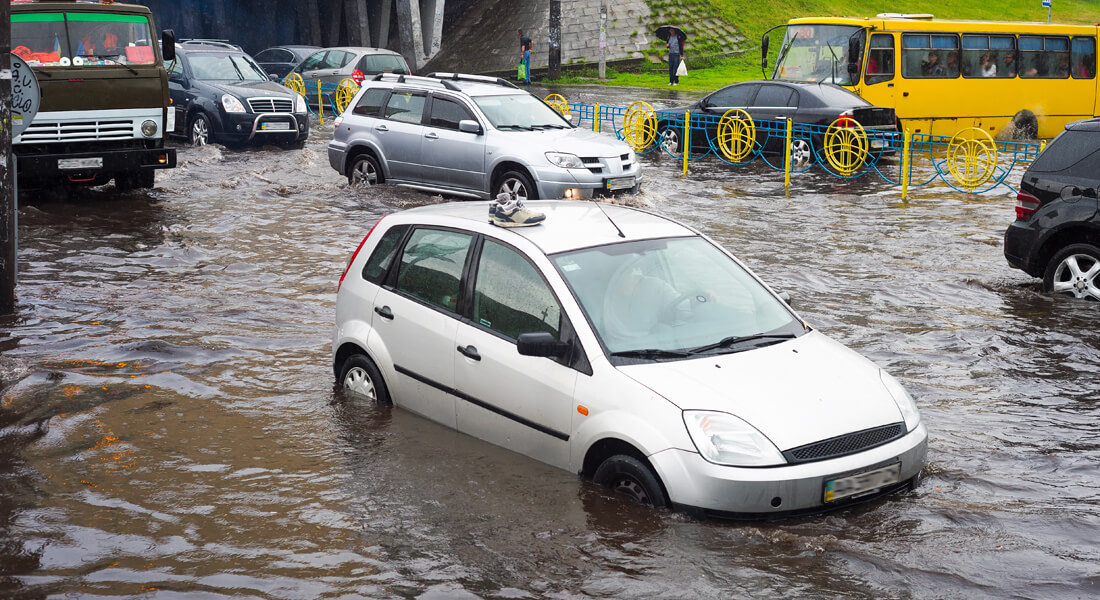Sustainability studies across disciplines and borders
Climate change is not only a global challenge, but also a challenge that must be tackled with solutions from all the different fields within higher education. An international student experience can be both an inspiring and a necessary way to begin the journey towards finding answers to the challenges of the future.

The University of Copenhagen acknowledges the importance of incorporating an interdisciplinary approach and an intercultural mindset when tackling climate challenges.
There are several ways in which to engage in sustainability science as a student at UCPH. No matter which faculty you belong to, you can work with issues of sustainability.
There is an abundance of unanswered sustainability questions, and we need to see the full picture in order to come closer to understanding them.
The Sustainability Science Centre at UCPH has made a simple tool for students who want to explore sustainability courses at across the university. Every course offered, across disciplines, in relation to the UN Sustainable Development Goals (SDG's), has been mapped, and the courses are categorised under the specific SDG to which they relate.
The initiative to identify SDG-related courses covers all our six faculties. In this way, we invite students to think in terms of multidisciplinary solutions.
The systematic mapping of SDG-related courses is especially valuable for international students wishing to engage in sustainability issues when visiting Copenhagen, because issues like climate change needs to be tackled across university disciplines and through the lenses of a global problem-solving mindset.
The SDG catalogue is a platform that invites all students to address the questions raised by climate change in a combined effort across disciplines and cultural backgrounds or experiences.
Danish universities co-offering cross-disciplinary MSc courses in sustainability
The University of Copenhagen together with Copenhagen Business School (CBS) and the Danish Technical University (DTU) have developed two cross-disciplinary MSc/master’s degree courses in sustainability. The aim is to train a generation of expert professionals who can work successfully in multi-disciplinary teams to solve the sustainability challenges that society and businesses face. The courses are offered at CBS and taught by faculty from all three universities. Students will be exposed to a systems thinking approach in relation to sustainability, drawing from business studies, engineering and science. You can read more about the two courses on the Sustainability Science Centre website.
Centre for Sustainability and Society
In addition to the cross-disciplinary course catalogue from The Sustainability Science Centre, the Faculty of Social Sciences has established the Centre for Sustainability and Society, which focuses on research and education in climate and sustainability. Dean Mikkel Vedby Rasmussen describes where there is a special need for a focus on sustainability within the Faculty of Social Sciences:
“Human behaviour and financial and political measures and incentives are crucial when tackling the climate problems of the world today. Technical solutions and insights from the natural sciences only work in interaction with how we live and the way in which we make decisions. At Social Sciences – University of Copenhagen, researchers and students from the fields of Economics, Sociology, Anthropology, Psychology and Political Science are investigating how human and political factors can create climate solutions that contribute to a more sustainable world. They are looking into how the climate agenda interacts with other issues concerning the society of tomorrow.”
The Faculty of Social Sciences has made a full catalogue of courses that can inspire students to choose courses that address climate change as well as environmental and sustainability issues from a political and societal perspective.
Green student organisations at UCPH
Course catalogues and inspiring research facilities are key parameters, but to immerse themselves completely in the cross-disciplinary and intercultural aspects of sustainability, students must be able to socialise and create bonds outside the classroom. The Sustainability Science Centre’s website has listed all the green student organisations where students can meet like-minded people from different academic backgrounds.
By Simone Hauskov, Alexandra Osorio Brito and Sara Dinesen
Want to know more?
If this have spiked your interest in the work that UCPH continues to do within this field, then feel free to sign up to get news of the latest events from the Sustainability Science Centre.
See the full catalogue of UCPH’s sustainability courses.
Read about all the different sustainability organisations that UCPH offers on the Sustainability Science Center website.
